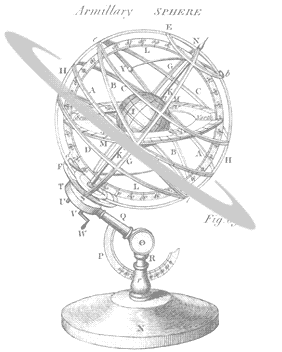

Summer Quarter 2025
Prof. Jim Schombert
Office: 461 Willamette, 6-5214
Office Hours: drop-in, email 1st please
email: jschombe@uoregon.edu
Course Content:
The past 20 years has seen an explosion in our understanding of the contents, formation and evolution of the Solar System, mainly due to numerous NASA missions/probes to all eight planets and many of the larger moons. The study of the characteristics of the other planets has provided tremendous insight into the understanding of how our own planet (Earth) operates and changes under Man's influence. The purpose of this course is to educate you on the basic science behind our exploration of the Solar System so you may make informed choices as future/current voters on issues of our environment and the future of science in this country.
The specific goals of this class are to:
Course Organization:
Use the email system. Often professors only hear from students through office hours, and those students are usually the ones having trouble in the course. When you study or review your notes, send me questions by email. Also email me suggestions and comments about the course, particularly in the first few weeks in order to have an impact during the term.

On-line Quizzes:
In order to get you to engage the lectures, the class has a quiz system at each web lecture page. At the bottom of each lecture you will find a "quiz" button. Hit it and take a quiz of 10 questions. You can restart a quiz at any point, take it with open book, notes or web resources. Please do your own work for these quizzes. They are learning exercises and copying answers will only lower your exam score as you will miss critical material.
These quiz questions count the same as an exam question. Your final grade will be based on the exam scores plus quiz scores. Not doing the quizzes will be the same as not taking an exam and subject to a failing grade. You will find that the quiz material comes from the web lecture pages and things discussed in class.
You may take the quizzes at any time, although I recommend you take them soon after you have read the lecture and before the exams covering that material. You scores (and correct/wrong answers) are posted right after you complete each quiz.
Due to the large number of quizzes, it is highly likely that you will miss a quiz. Thus, each student will be allowed to drop the three lowest quiz scores for the final grade. If you miss three quizzes, then those three zeros are dropped. If you answer all the quizzes on time, then your three lowest scores will be dropped. If you miss more than three quizzes you will be dropped 1/3 a letter grade (i.e. B+ to B) per group of three that you miss in a step-like fashion (i.e., you miss 1-3 quizzes, no penalty; miss 4-6 quizzes, you lose 1/3 a grade, miss 7-9 quizzes, you lost 2/3's a grade, etc.).
To summarize:
Grading:
Grading will consist of the following:
The three exams are large, difficult multiple choice exams (you will be emailed instructions and the link to take the exam). Each exam covers 1/3 of the course. The exams are designed using material from the lectures *and* textbook, so mastery of both is required for a good grade. Not taking an exam will automatically fail you from the course. It's not very useful to wait till the last minute to study for an exam.
The exams are 100 multiple choice questions. These questions are organized into three types; 1) fact based, C-like questions (e.g., what color is Mars?), 2) concept based B-like questions (e.g., why is Mars red?) and 3) processing A-like questions (e.g., why is Mars' soil rich in FeO). Thus, your letter grade is not based on the total number of right answers (like in high school where 70% was a 'C'), but rather on the proportional amount of A, B or C questions you answered (minus the number you guessed and got correct by random luck). For example, if you answered all the 'C' questions correctly (33) then guessed the rest (67), one would expect that you got 67/5 = 13 right by luck, so a passing score is 33+13 = 46.
If you miss an exam due to illness or a family emergency you must contact me as soon as possible after the exam and before the next exam. You must take the make-up exam *before* the next exam.
Note there is no final exam during final exam week. The three exams taking during the term consist of all the exams towards your grade.
Your grade will be based on the sum of the quiz and exam scores. You must maintain an average of greater, or equal, to 45% to pass the course. Above that score, your grade is ranked compared to other students and your grade is assigned based on that rank. The class website has a button to find out what your current grade is, which is activated *after* the first exam. Note that the exams are worth more than the quizzes, failing all the exams will mean you fail the course, regardless of your quiz scores.
Textbook:
The textbook, which is optional, for this class is Schneider&Arny, Pathways of Astronomy, you can find it on Amazon or local used bookstores. Any edition is fine, if the Unit numbers vary you can match them to the topics shown below. Consider getting the textbook if the web readings and lectures are confusing or seem insufficient. A book is a different voice and there is nothing wrong with using other resources. Another excellent on-line textbook is Astro 2e. The reading assignments are:
| Lecture | Chapter (S&A) | Chapter (Astro2e) |
|
Lecture 1 Lecture 2 Lecture 3 Lecture 4 Lecture 5 Lecture 6 Lecture 7 Lecture 8 Lecture 9 Lecture 10 Lecture 11 Lecture 12 Lecture 13 Lecture 14 Lecture 15 Lecture 16 Lecture 17 Lecture 18 Lecture 19 Lecture 20 Lecture 21 Lecture 22 Lecture 23 Lecture 24 Lecture 25 |
Units 4 (Sc Foundations), 10 (Geo of Earh/Moon) Units 11 (Planets), 12 (Begin of Modern Astro), 13 (Obs the Sky) Units 6 (Year), 7 (Time), 8 (Lunar Cycles) Units 14 (Motion), 15 (Force), 17 (Mass) Units 16 (Gravity), 18 (Veloicities), 19 (Tides) Units 21 (Light/Matter), 22 (Spectrum), 23 (Thermal) Units 4, 24 (Atoms) Unit 34 (Solar System), 35 (Origins) Units 37 (Earth), 38 (Atmos) Unit 39 (Moon), 40 (Mercury) Units 41 (Venus) Unit 42 (Mars) Unit 47 (Sat Systems) Unit 36 (Other) Unit 38 (Atmos) Unit 44 (Comparative) Unit 47 (Systems), 48 (Icy) Units 43 (Asteroids), 49 (Comets) Unit 45 (Jupiter/Saturn) Unit 46 (Uranus/Neptune) Units 48 (Icy) Unit 51,52,53 (Sun) Units 35 (Origins) Units 36 (Other) Units 85, 86 (Search for Life) |
1.1 to 1.4 2.1 to 2.4 4.1 to 4.7 3.1 to 3.2 3.3 to 3.6 5.1 to 5.3 5.4 to 5.6 7.1 to 7.4 8.1 to 8.3 9.1 to 9.5 10.1 to 10.3 10.4 to 10.6 12.1 to 12.3 ... ... 13.1 to 13.4 11.1 to 11.3 14.1 to 14.4 12.4 to 12.5 ... ... 16.1 to 16.4 ... ... 30.1 to 30.4 |
Accommodations:
If you have a disability and anticipate needing accommodations in this course, please email me as soon as possible. And please request that the Counselor for Students with Disabilities (disabsrv@uoregon.edu) send a letter verifying your disability.